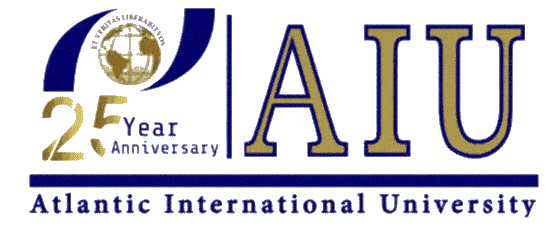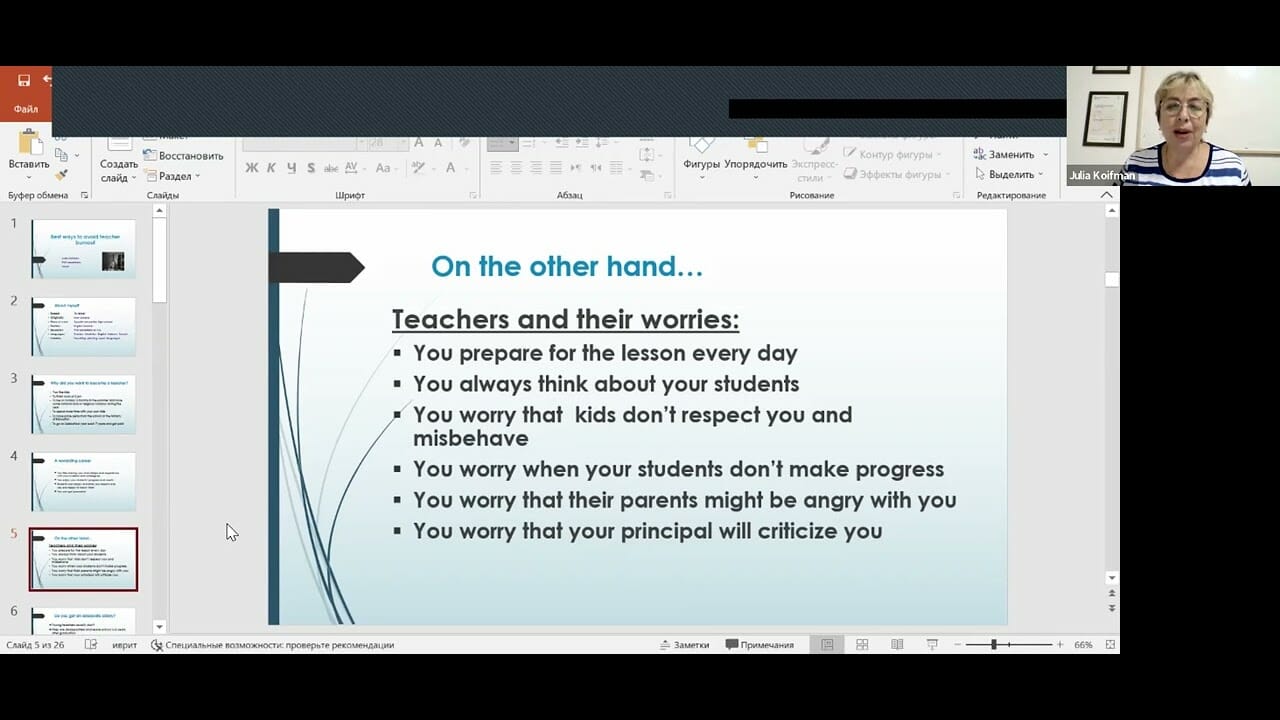Bachelors in Finance and Banking
School of Business & Economics
Academic Freedom to Discover Your Purpose
Open Curriculum Design at Atlantic International University
Welcome to the world of finance and banking bachelor’s programs, where opportunities abound for those with a keen eye for numbers and a passion for economic intricacies. If you aspire to delve into the dynamic realm of financial markets, investment strategies, and monetary policies, then the Bachelor’s in Banking and Finance program at AIU is your gateway to success. As one of the best finance and banking undergraduate schools, AIU is renowned for its rigorous andragogy and omniology-centric curriculum, expert faculty, and cutting-edge resources tailored to equip students with the skills and knowledge needed to excel in the financial industry. Whether you’re intrigued by investment analysis, risk management, or corporate finance, our program offers comprehensive training to meet the demands of today’s competitive financial landscape. Join us as we explore the prerequisites, bachelors in finance and banking requirements, and AIU as one of the top universities for Finance and Banking degrees. You will soon embark on the best distance-learning journey toward a rewarding career in finance.
Contact Us Today!
We understand how busy adults do not have time to go back to school. Now, it’s possible to earn your degree in the comfort of your own home and still have time for yourself and your family. The Admissions office is here to help you, for additional information or to see if you qualify for admissions please contact us. If you are ready to apply please submit your Online Application and paste your resume and any additional comments/questions in the area provided.
Pioneer Plaza
900 Fort Street Mall 905
Honolulu, HI 96813
800-993-0066 (Toll Free in US)
808-924-9567 (Internationally)
808-947-2488 (Fax)
Core Courses & Topics: Bachelors in Finance and Banking
Important: Below is an example of the topics or areas you may develop and work on during your studies. By no means is it a complete or required list, as AIU programs do not follow a standardized curriculum. It is meant solely as a reference point and example. Want to learn more about the curriculum design at AIU? Check here: Course and Curriculum
The Bachelor’s in Finance and Banking curriculum offers diverse core courses and topics meticulously designed to provide a comprehensive understanding of the financial world. From foundational principles to advanced strategies, the program covers essential areas such as financial analysis, banking operations, investment management, and risk assessment. Core courses include Financial Accounting, Macroeconomics, Microeconomics, Corporate Finance, Financial Markets and Institutions, Investment Analysis, and International Finance.
Elective finance and banking undergraduate holistic courses allow students to tailor their studies to their interests, exploring topics like Financial Derivatives, Banking Regulation, Portfolio Management, and Behavioral Finance. Additionally, students learn practical skills through hands-on experiences such as case studies, simulations, and internships, preparing them for real-world challenges in the finance industry. While pursuing their Bachelor’s degree in Finance and Banking, students may explore various options for financing their education, including finance and banking scholarships to help alleviate the overall finance and banking bachelor’s degree cost.
- Financial Accounting
- Macroeconomics
- Microeconomics
- Corporate Finance
- Financial Markets and Institutions
- Investment Analysis
- International Finance
- Global Economic Studies
Orientation Courses
As students embark on their Bachelor’s journey in Finance and Banking, they encounter a series of orientation courses designed to set a robust foundation for their academic and professional pursuits. These introductory courses equip students with essential knowledge and provide insights into potential career pathways and research interests. Critical orientation courses include Introduction to Finance and Banking, which familiarizes students with core concepts and institutions within the financial sector.
Mathematics for Finance enhances quantitative skills vital for financial analysis and decision-making, while Business Communication cultivates effective written and verbal skills crucial in the industry. Introduction to Economic Theory delves into microeconomic and macroeconomic principles, offering a broader understanding of economic dynamics. Financial Management equips students with tools for strategic decision-making, and Banking Operations provide insights into banking procedures and regulations.
As students progress, they explore diverse job prospects within finance and banking, from financial analysis to risk management, capital markets, and beyond. Furthermore, they may delve into bachelor’s thesis topics ranging from financial market trends and investment strategies to banking regulations and economic policy analysis, showcasing their expertise and research capabilities.
- Communication & Investigation (Comprehensive Resume)
- Seminar Administrative Development (Book Summary)
- Organization Theory (Portfolio)
- Seminar Cultural Development (Practical Experience)
- Experiential Learning (Autobiography)
- Seminar International Development (Publications)
Research Projects
Research projects are integral components of Bachelor’s programs in Finance and Banking, offering students opportunities to delve deeper into specific areas of interest and demonstrate their expertise in the field. These projects serve as platforms for exploring relevant topics and addressing real-world challenges the finance and banking industry faces. Students may investigate diverse areas such as financial market trends, investment strategies, banking regulations, risk management practices, and economic policy analysis. Through these projects, students gain valuable insights and develop critical thinking, analytical, and research skills essential for success in finance and banking job prospects.
Moreover, engaging in research projects enhances students’ competitiveness in the job market, as employers value candidates who can apply theoretical knowledge to practical situations and contribute innovative solutions to industry challenges. As students navigate their academic journey in finance and banking schools, they can tailor their research projects to align with their career aspirations and interests, further enhancing their prospects in the banking degree field.
Whether exploring topics related to banking operations, financial analysis, or corporate finance, finance and banking bachelor’s thesis topics testify to students’ capabilities and readiness to make significant contributions to the finance and banking sector.
- MBM300 Thesis Proposal
- MBM302 Bachelor Thesis (5,000 words)
Publication -In Bachelor’s programs focusing on finance and banking, student publications play a vital role in showcasing aspiring professionals’ academic prowess and research achievements. These publications serve as platforms for students to disseminate their insights, findings, and analyses in various areas of bachelors in finance and banking.
Whether through research papers, case studies, or articles, students can explore topics covered in their finance courses and banking courses, contributing to a broader understanding of the field. By delving into relevant issues within the banking curriculum, such as banking operations, risk management, financial analysis, and investment strategies, students demonstrate their depth of knowledge and analytical skills to peers and industry professionals alike. Moreover, student publications offer avenues for collaboration, networking, and mentorship, fostering a vibrant academic community within Bachelor’s in finance programs.
Through these publications, students not only enrich their banking courses learning experiences but also establish themselves as emerging experts in the field of finance and banking, laying a solid foundation for their future careers in the industry.
Thesis Defense for Bachelors in Finance and Banking
The thesis defense for Bachelors in Banking and Finance marks a significant milestone in the academic journey of Bachelor’s students specializing in banking and finance. As candidates prepare to defend their research, they showcase their expertise in navigating the complexities of financial institutions, business administration, and financial markets. Drawing upon their rigorous coursework in finance and banking, students present their findings, analyses, and conclusions before a panel of faculty and industry experts.
The defense process evaluates students’ comprehension of key concepts and their ability to apply theoretical knowledge to practical scenarios within the dynamic landscape of financial markets. Held within the esteemed halls of business schools, thesis defense events provide a platform for intellectual exchange and scholarly discourse, enriching the academic community with innovative insights and perspectives.
Through the culmination of their research endeavors, students demonstrate their readiness to embark on professional careers armed with a comprehensive finance degree and a deep understanding of the intricate workings of financial systems.
Apply Now for Bachelors in Finance and Banking at AIU
Click Here
Bachelors in Finance and Banking Student Experience at AIU
At AIU, students pursuing a Bachelor’s in Finance and Banking are immersed in a dynamic learning environment that merges cutting-edge technology with a comprehensive curriculum of financial technology degree tailored to the evolving needs of the financial services industry. As they embark on their academic journey, students engage with innovative AI tools like ChatGPT, Stable Diffusion, and Midjourney, enhancing their learning experiences and facilitating a deeper understanding of complex financial concepts.
Through hands-on experiences and interactive simulations, financial services students gain practical insights into the workings of the banking industry, exploring diverse facets of financial services and technologies reshaping the landscape. Whether delving into topics like financial technology, risk management, or investment strategies, students benefit from a curriculum designed to equip them with the skills and knowledge necessary to excel in finance majors.
Beyond the classroom, AIU fosters a vibrant student community, providing opportunities for networking, collaboration, and professional development within the broader financial services realm. With access to state-of-the-art resources and guidance from experienced faculty, students graduate prepared to make meaningful contributions to the dynamic and ever-evolving field of finance and banking, thus fulfilling the requirements of a financial services degree.
Community & Social
As a student in the Bachelor’s program in Finance and Banking at AIU, you’re part of a global community connected through the Virtual Campus, Mobile App, and various technologies. Despite the program being online, you engage with peers, alumni, and faculty at events like symposiums, conferences, webinars, and competitions via platforms like MYAIU and AIULINK.
The AIU program fosters independence as a University of One yet provides financial professionals with robust support systems and collaborative tools like MYAIU, AIULink, and AIUTV. You’ll explore international finance, corporate finance, and banking through resources like the Merlin Media Center and Live Webinars. With guidance from tutors and academic advisors, you’ll navigate concepts like Northern’s online banking and the Federal Reserve System, preparing you for roles as financial managers and corporate finance professionals.
Academic Resources
As students pursue their Bachelor’s in Finance and Banking degree program at Atlantic International University (AIU), they access various academic resources tailored to their needs. The Virtual Campus integrates over 25 unique tools, including a new Virtual Reality 3D immersive experience, fostering growth, motivation, and inspiration. The AIU Online Library provides access to 260,000 books and over 30 million peer-reviewed articles, while the Merlin Media Center hosts over 105,000 AIU-created academic content.
Additionally, students can explore quality learning sources outside the classroom, including experts, social media, YouTube, and Massive Open Online Courses (MOOCs), covering topics such as financial theory, management information systems, bank regulation, and risk management. They can apply financial theory resources and empower themselves to understand theoretical knowledge to practical scenarios, enhancing their readiness for the banking and financial industry.
Virtual Campus
Complete assignments online or offline at your convenience with 24/7 access to distance learning through AIU’s Virtual Campus. Step by Step guides including videos, tutorials, live webinars and examples for each course. All materials can be access on all web browsers as well as via AIU's Mobile App which brings all the features of the Virtual Camus to your Mobile Device.
My AIU Elements
MyAIU’s primary goal is to go beyond Academics, it looks to guide students through 11 elements that are key to living life optimally in all aspects. By identifying and reflecting on these key areas, an opportunity arises to holistically address them, through positive change, habits, reinforcement and tools to keep students on their chosen path.
AIU TV & Radio
The students have the opportunity to produce, edit and host their own show reaching a worldwide audience, the AIU community and giving notice of their expertise/passion in the subject. AIUTV & AIU Radio allow students to explore new ways to communicate, develop a platform and form potential collaboration with likeminded individuals.
AIU Campus Mundi
AIU Campus Mundi is a monthly magazine that gathers the most notable news and information about the university and its members in one convenient place. The magazine allows our community to be well informed, involved and keep in tough regardless of their geographic location. AIU Campus Mundi publishes, news, research, events, awards, academic achievements.
Graduation Ceremony
Each year AIU organizes graduation ceremonies where the students can assist and share their experiences with fellow students and academic members Participation in the ceremony is optional, the day’s events include conferences, research presentations, group meetings, networking, lunch and formal dinner.
Symposiums & Webinars
At AIU’s graduate school, symposiums play a pivotal role in shaping the educational journey of Bachelor’s students in finance and banking. These symposiums offer a platform for in-depth exploration of key topics, from the historical impacts of the Industrial Revolution to the latest trends and challenges in banking. Students gain valuable insights from industry experts and academic leaders through presentations, panel discussions, and networking opportunities.
Live Classes
At our graduate school, students benefit from two live classes each day, enriching their educational experience and preparing them for a rewarding career ahead. These live sessions serve as vital opportunities to engage with faculty and peers, discussing crucial topics ranging from the impacts of the Industrial Revolution to the intricacies of banking in the modern world. Through interactive discussions and real-time collaboration, students delve deeper into their studies, gaining insights beyond textbooks and lectures. These daily live classes enhance academic learning and foster a sense of community and camaraderie among students, setting the stage for success in their future endeavors.
Live Classes Examples on Finance and Banking: Monetary Policy Transmission Channel | FED and ECB Decisions on Tapering Process | Monetary Policy and Interest Rate
Special Projects, Research Publications, & Co-Authoring
In the Bachelor’s program in Finance and Banking at AIU, students can engage in special projects, research publications, and co-authoring endeavors that bridge the realms of finance, banking, and information technology. Through these initiatives, students explore innovative approaches to address challenges within the financial services sector, leveraging the latest technologies to drive efficiency and effectiveness.
Whether delving into fintech solutions, blockchain applications, or data analytics in finance, students collaborate with faculty and industry experts to produce cutting-edge research publications that contribute to advancements in the field. By actively participating in these endeavors, students enhance their understanding of finance and banking and develop valuable skills in research, analysis, and critical thinking. These experiences prepare them to navigate the evolving landscape of financial services and leverage information technology to drive meaningful change in the industry.
Explore AIU’s Uniqueness and Unrepeatability with a Click
Get Started with the AIU Magazine
Career Center for Bachelors in Finance and Banking
In the Bachelor’s program in Finance and Banking at AIU, students can access a comprehensive Career Center that supports their professional development and career aspirations. The Career Center offers a range of resources and services tailored specifically to the finance and banking industry. Students receive personalized guidance to help them showcase their skills and experiences effectively to potential employers. Additionally, the Career Center provides networking opportunities, job fairs, and industry connections, enabling students to explore internship and job opportunities in finance, banking, and related fields. With the support of experienced career advisors and access to industry insights, students are equipped to pursue rewarding career paths and make meaningful contributions to the finance and banking sector upon graduation.
Job Description
In the Bachelor’s program in Finance and Banking at AIU, students acquire a diverse skill set and knowledge base that prepares them for various career opportunities in the finance industry. Whether pursuing roles in banking, investment management, financial analysis, or risk assessment, graduates are equipped with the expertise to excel in various financial services industry sectors. With a strong foundation in economic principles, banking operations, and regulatory compliance, AIU graduates are well-positioned to pursue rewarding careers that contribute to the growth and stability of financial institutions worldwide.
Here are some job roles that graduates of the Bachelor’s program in Finance and Banking at AIU may pursue:
- Financial Analyst
- Investment Banker
- Commercial Banker
- Financial Planner
- Risk Manager
- Credit Analyst
- Loan Officer
- Treasury Analyst
- Compliance Officer
- Wealth Manager
- Asset Manager
- Corporate Finance Analyst
- Financial Consultant
- Investment Analyst
- Financial Auditor
These roles represent just a few of the many career paths available to graduates with a background in finance and banking from AIU.
Tools for Bachelors in Finance and Banking
In the Bachelor’s program in Finance and Banking at AIU, students benefit from cutting-edge tools and resources designed to enhance their learning experience and prepare them for success in the finance industry. These tools provide practical applications of theoretical concepts and foster critical thinking and analytical skills essential for navigating the complexities of the financial world.
From advanced financial modeling software to real-time market analysis platforms, students have access to a diverse array of tools that mirror the technologies used in modern financial institutions. By leveraging these tools in their coursework and projects, students gain hands-on experience and develop a competitive edge in the job market upon graduation.
Here is a list of tools commonly used by students in the Bachelor’s program in Finance and Banking at AIU:
- MATLAB
- Tableau
- Python programming language
- R programming language
- Stata
- SAS
- Risk management software (e.g., RiskMetrics, Value at Risk)
Associations for Bachelors in Finance and Banking
In the Bachelor’s program in Finance and Banking at AIU, students are encouraged to engage with professional associations that provide valuable networking opportunities, industry insights, and career development resources. These associations serve as hubs for students to connect with seasoned professionals, stay updated on industry trends, and access exclusive events and workshops.
By becoming active members of these organizations, students can expand their knowledge, enhance their skills, and gain exposure to various career paths within the finance and banking sectors. Whether pursuing internships, seeking mentorship, or exploring job opportunities, membership in these associations can significantly enrich students’ educational experiences and prepare them for success in their future careers.
Here is a list of associations that students in the Bachelor’s program in Finance and Banking at AIU may consider joining:
- American Bankers Association (ABA)
- CFA Institute
- Financial Planning Association (FPA)
- Association for Financial Professionals (AFP)
- National Association of Personal Financial Advisors (NAPFA)
- Risk Management Association (RMA)
- Financial Management Association International (FMA)
- Institute of Financial Consultants (IFC)
- Global Association of Risk Professionals (GARP)
- Association of Certified Anti-Money Laundering Specialists (ACAMS)
These associations offer a wealth of resources, including networking events, professional certifications, continuing education opportunities, and industry publications, to support students as they embark on their journey toward a successful career in finance and banking.
Explore AIU’s Virtual Campus to Begin Your Outstanding Educational Experience
Start Now
Bachelors in Finance and Banking Requirements
The Bachelor’s in Finance and Banking program at AIU offers a comprehensive curriculum tailored to equip students with the skills and knowledge required to thrive in the dynamic world of finance. To enroll in this program, prospective students must possess a High School Diploma, a GED certificate, or an equivalent qualification from a recognized institution. Our admissions process ensures that individuals from diverse educational backgrounds have the opportunity to pursue their academic aspirations in the field of finance and banking.
Students delve into financial analysis, investment management, banking operations, and risk assessment through a blend of theoretical concepts and practical applications. With a commitment to fostering critical thinking and analytical skills, AIU prepares graduates to excel in various roles within the financial industry, whether in banking institutions, investment firms, or corporate finance departments. Join us at AIU to embark on a fulfilling journey towards a rewarding career in finance and banking.
How Can You Apply?
- Browse through the AIU website: Begin your application process by visiting the AIU website and navigating to the section dedicated to undergraduate programs. Here, you can explore detailed information about the Bachelor’s in Finance and Banking program, including curriculum, faculty, and admission requirements.
- Fill in your details: Complete the online application form once you’ve familiarized yourself with the program requirements and offerings. Provide accurate and up-to-date information about your details, educational background, and contact information.
- Submit your application: After completing the application form, review all the entered information to ensure its accuracy. Double-check that you have included all necessary documents and supporting materials as specified in the application guidelines. Once satisfied with your application, submit it through the designated online portal.
- Await contact from an academic advisor: After you submit your application, one of the academic advisors at AIU will review it thoroughly. They will assess your qualifications and suitability for the Bachelors in Finance and Banking program. Expect to receive a follow-up call or email from the academic advisor to discuss your application further and address any questions or concerns you may have.
- Engage with the academic advisor: During the conversation with the academic advisor, take the opportunity to ask any questions you have about the program, admissions process, or student life at AIU. The advisor will provide guidance and support to help you navigate through the remaining steps of the enrollment process, including financial aid options and enrollment deadlines.
By following these steps, you can successfully apply for the Bachelor’s in Finance and Banking program at AIU and take the first step towards advancing your career in finance.
Financial Support & Scholarships
At AIU, we understand the importance of providing financial support to our students pursuing their Bachelor’s in Finance and Banking degrees. We offer a range of scholarships and financial aid opportunities to assist students in achieving their academic goals. Our scholarship programs are designed to recognize academic excellence, leadership potential, and financial need. Eligible students can apply for scholarships through our online portal, where they can explore various options tailored to their circumstances.
Additionally, AIU provides financial aid counseling services to guide students through applying for grants, loans, and other financial assistance. Our commitment to ensuring access to quality education means we strive to make our programs affordable and accessible to all qualified individuals. Whether you’re a high-achieving student or facing financial challenges, AIU is dedicated to supporting you on your journey toward a successful career in finance and banking.
What’s the Cost Per Year for Pursuing Bachelors in Finance and Banking at AIU?
At AIU, we believe that quality education should be accessible to all. We proudly offer an affordable Bachelor’s in Finance and Banking program. Our commitment to affordability doesn’t compromise the quality of education you’ll receive. Through innovative teaching methods, experienced faculty, and a comprehensive curriculum, we prepare students for success in the dynamic field of finance. With flexible payment options, financial aid opportunities, and competitive Atlantic International University tuition rates, AIU ensures that pursuing your passion for finance and banking is within reach. Join us at AIU to embark on an enriching educational journey that won’t break the bank.
FAQs
What is the difference between finance and banking?
Finance encompasses a broader spectrum of activities related to managing money, investments, and assets. It involves analyzing markets, making financial decisions, and managing risks to achieve financial goals. On the other hand, banking refers explicitly to the services provided by financial institutions such as banks, including deposit-taking, lending, and facilitating financial transactions. While finance deals with the principles and strategies behind managing money, banking focuses on the practical execution of financial services within the framework of regulatory guidelines. In essence, finance is the overarching field that includes banking as one of its key components.
What career opportunities are available with a bachelor's degree in finance and banking?
A bachelor’s degree in finance and banking opens up diverse career opportunities in the financial industry. Graduates can pursue roles such as financial analyst, investment banker, commercial banker, risk manager, financial planner, credit analyst, and securities trader. Additionally, they may find opportunities in corporate finance, asset management, financial consulting, and government finance. The versatile skill set acquired through this degree prepares individuals for various positions across sectors including banking institutions, investment firms, corporations, and government agencies.
How long does it typically take to complete a bachelor's degree in finance and banking?
A bachelor’s degree in finance and banking typically requires around four years of full-time study. However, the exact duration may vary depending on program structure, credit requirements, and individual pace of study. Some programs offer accelerated options or allow students to take additional courses during summer sessions, potentially shortening the time needed to earn the degree.
Can I pursue a bachelor's degree in finance and banking online?
Yes, you can pursue a bachelor’s degree in finance and banking online. AIU offers an online Bachelor’s in Finance and Banking program, which allows students to study at their own pace and schedule while receiving the same quality education as their on-campus counterparts.
What courses are typically included in a finance and banking curriculum?
A typical finance and banking curriculum includes courses such as financial accounting, corporate finance, investment analysis, banking operations, risk management, financial markets, financial modeling, economics, and business law. These courses provide students with a comprehensive understanding of financial principles, banking practices, and investment strategies essential for success in the field.
Are there any specific scholarships available for students studying finance and banking?
Yes, AIU offers specific scholarships for students studying finance and banking. These scholarships are designed to support students pursuing their academic goals in finance and banking and recognize their achievements and potential in this area.
What skills will I develop through a bachelor's degree in finance and banking?
Through a bachelor’s degree in finance and banking, you will develop essential skills such as financial analysis, critical thinking, problem-solving, communication, quantitative analysis, risk management, and decision-making. These skills are crucial for success in various roles within the financial industry, including banking, investment, corporate finance, and financial planning.
Contact Us
Atlantic International University
900 Fort Street Mall 905 Honolulu, HI 96813
Quick Links
Home | Spanish | Online Courses | Available Courses | Vrtual Campus | Career Center | Available Positions | Ask Career Coach | The Job Interview | Resume Writing | Accreditation | Areas of Study | Bachelor Degree Programs | Masters Degree Programs | Doctoral Degree Programs | Course & Curriculum | Human Rights | Online Library | Representations | Student Publication | Sponsors | General Information | Mission & Vision | School of Business and Economics | School of Science and Engineering | School of Social an Human Studies | Media Center | Admission Requirements | Apply Online | Tuition | Faculty & Staff | Distance Learning Overview | Student Testimonials | Frequently Asked Questions | Register for Program | Privacy Policy | FAQ


























